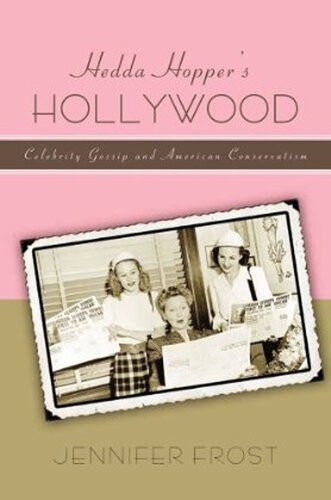

Most ebook files are in PDF format, so you can easily read them using various software such as Foxit Reader or directly on the Google Chrome browser.
Some ebook files are released by publishers in other formats such as .awz, .mobi, .epub, .fb2, etc. You may need to install specific software to read these formats on mobile/PC, such as Calibre.
Please read the tutorial at this link: https://ebookbell.com/faq
We offer FREE conversion to the popular formats you request; however, this may take some time. Therefore, right after payment, please email us, and we will try to provide the service as quickly as possible.
For some exceptional file formats or broken links (if any), please refrain from opening any disputes. Instead, email us first, and we will try to assist within a maximum of 6 hours.
EbookBell Team

0.0
0 reviewsBefore Liz Smith and Perez Hilton became household names in the world of celebrity gossip, before Rush Limbaugh became the voice of conservatism, there was Hedda Hopper. In 1938, this 52-year-old struggling actress rose to fame and influence writing an incendiary gossip column, "Hedda Hopper's Hollywood," that appeared in the Los Angeles Times and other newspapers throughout Hollywood's golden age. Often eviscerating moviemakers and stars, her column earned her a nasty reputation in the film industry while winning a legion of some 32 million fans, whose avid support established her as the voice of small-town America. Yet Hopper sought not only to build her career as a gossip columnist but also to push her agenda of staunch moral and political conservatism, using her column to argue against U.S. entry into World War II, uphold traditional views of sex and marriage, defend racist roles for African Americans, and enthusiastically support the Hollywood blacklist.
While usually dismissed as an eccentric crank, Jennifer Frost argues that Hopper has had a profound and lasting influence on popular and political culture and should be viewed as a pivotal popularizer of conservatism. The first book to explore Hopper's gossip career and the public's response to both her column and her politics, Hedda Hopper's Hollywood illustrates how the conservative gossip maven contributed mightily to the public understanding of film, while providing a platform for women to voice political views within a traditionally masculine public realm. Jennifer Frost builds the case that, as practiced by Hopper and her readers, Hollywood gossip shaped key developments in American movies and movie culture, newspaper journalism and conservative politics, along with the culture of gossip itself, all of which continue to play out today.
Read a review of the book from the Chronicle of Higher Education blog, Tenured Radical.